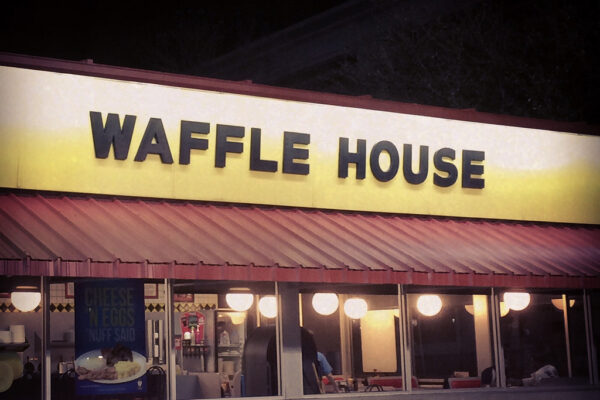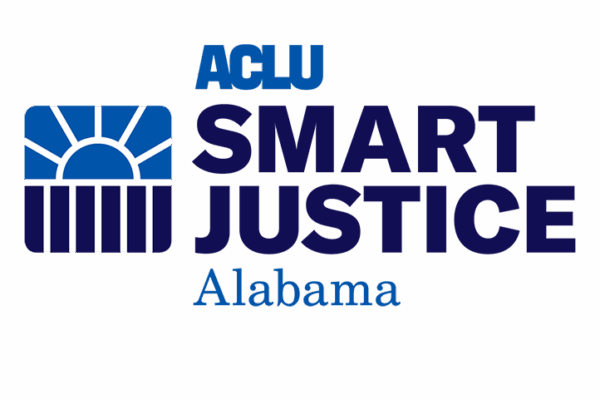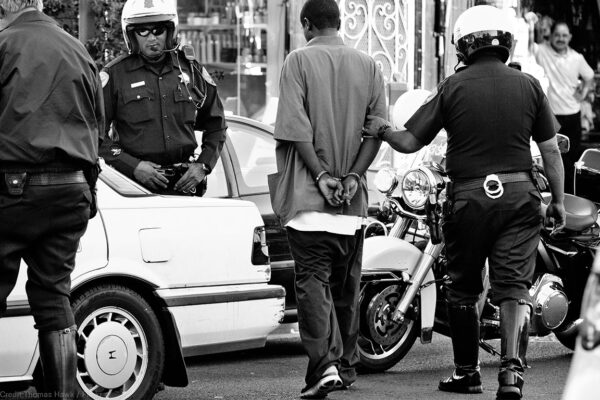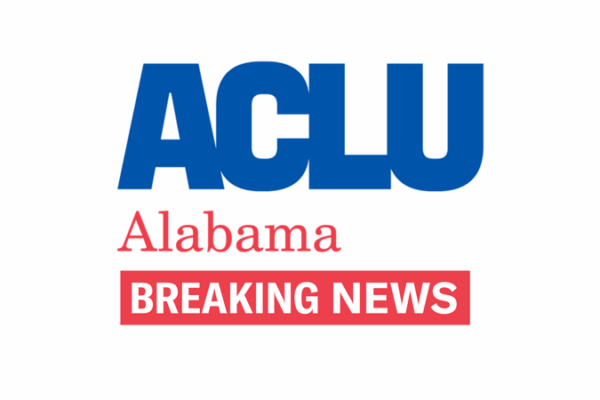On the heels of the arrest of two Black men in a Philadelphia Starbucks comes the unsettling story of Chikesia Clemons. Early Sunday morning on April 22, 2018, Clemons and her friends entered a Waffle House in Saraland, Alabama. According to Clemons, her request for plastic utensils turned into a disagreement between her and the server, and the server called the police.
After this moment of disagreement, the interaction deteriorated because of the choices made by both the server and the police. The Waffle House server had a choice between providing customer service to a woman expressing displeasure, as we all have done, and calling the police. And then, once the police were notified, they also had a critical decision to make. They could use mediation techniques to attempt to resolve the dispute between the two parties, they could have escorted her from the premises without force, or they could use force and violently arrest her.
We know the choices they made this time. In order to prevent similar events from happening again, we need to insist that people start making different and better choices. More importantly, we need law enforcement to understand and train for racial bias in order to combat its impact on interactions with communities of color. And we need to acknowledge that race is a factor in how Black people are treated by both law enforcement and society at large.
Excessive force against people of color has and must continue to be at the forefront of national conversations about policing, and for good reason. The recording of what happened in Saraland shows the police grabbing Clemons, slamming her to the floor, choking her, threatening to break her arm, and stripping off her top in the process. Every viewing of this video makes me more angry, more sad, and more afraid because of the sobering realization that it could have been me.
There are no facts that justify the treatment that Clemons received, yet spokespeople for the Saraland Police Department have defended the officers’ actions. How can policing improve if officers and their superiors are not willing to acknowledge that they could have acted differently and be accountable to the communities they serve? And if the way the officers acted was entirely within their authority, then the laws or policies granting that authority need to change.
Racial bias and discrimination are pervasive throughout our society. From receiving poorer service at restaurants to being charged higher interest rates at banks, Black people routinely experience discriminatory treatment. And then if we express displeasure over this treatment, societal stereotypes are quick to label our reactions as angry and threatening. This is why it is imperative that companies like Waffle House and Starbucks train their employees who work in service to combat implicit bias and empower them with customer service skills geared towards problem solving. But if they refuse to train their employees in a responsible manner, then the police should never be a corporate countermeasure to a dispute with a customer.
In the end, we all need to #BelieveBlackWomen and stop the mental gymnastics being used to justify racist behavior. Hearing the whole story doesn't change the fact that these incidents are frequent, excessive, and racially driven. So let's stop looking for the one bad apple and start accepting that the whole tree is what's infected.
Photo: "Waffle House" by Steve Myles CC 2.0




